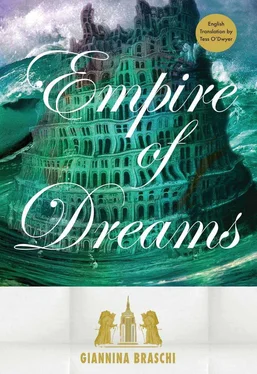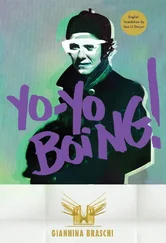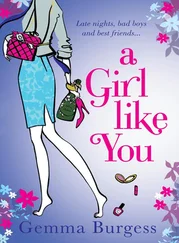This book is dedicated to the entire cast of Profane Comedy. To the actors who play the roles of drunkards and buffoons. It is also dedicated to all the people I do not mention but who helped me with the setting of the stage and the costumes of the actors. I must thank all of you for having listened to my poems. This book was written to be sung and to be read in public and to be heard by large audiences. And to be proclaimed at festivals and gala concerts. With elegant dresses. And makeup. And actors. And extras. And comedies. It was written for carnivals and orgies. It was written for well-being and joy. And it was written for the company. It was written for the world and for life and for crowds and masses. It was written for elitists and thinkers and philosophers. It is the book of exclamations and interjections. And it is the book of Bacchus and Faustus. And of the poet-child. And of the poet-actor. And of the poet-philosopher. All these poets and the poems never written by philosophers are in the pages of this book. And children’s stories are here. And the prima donna is here. And the singer. And here is Giannina, dressed like a clown, giving the right cues to all the actors of Profane Comedy. They are all nervous and will soon begin to sing their complaints and their laments. Soon the alarm will sound. Soon Profane Comedy will begin. Soon fortune-tellers and buffoons will speak. Soon Pastoral will arrive. And soon Profane Comedy will end.
1. Book of Clowns and Buffoons
…et la Reine, la Sorcière qui allume sa braise dans le pot de terre, ne voudra jamais nous raconter ce que’elle sait, et que nous ignorons.
— Rimbaud, Illuminations
You’ll open the door to poetry because poetry doesn’t know what it’s looking for and asks for the shade of light and asks for the river and the sea and eats cherries off the tree. Poetry spy and watchman of trees and mountains, and thief of the secret and of the mysteries pent in glass, and drunkenness of night mourning for the widowhood of day. Poetry of the telegram and poetry of the telephone. Poetry of the letter in the mailbox. Poetry of the envelope and the melon eaten by love’s wound. Poetry between the peach and the airplane’s letter. Poetry between you and me. Poetry between he already came and left and disappeared, between the fruit and the seed bearing the message from the lover who won’t come back.
Poetry of a shark with two whales and a scarecrow. Poetry of a crab and a turtle. Poetry of an elevator and two cars. Poetry of a giant and a dwarf. Poetry of the clown and the drunkard. Poetry of the star and the wall. Poetry of the summer and the mountain. Poetry of the flying rabbit and the dancing shoe. And poetry of the pain of joy and poetry of the joy of pain. Poetry of the bat and the witch. Poetry of the torn shoe and the barefoot stockings and the horizon that looks for you when you’re approaching the mountain. And poetry of the hill you descend when you’re expecting the call. And poetry of the number lost in the magician’s hat. And poetry of the parakeet’s feather and poetry of the parrot and the parasol. And poetry of the shadow and the witness. And poetry of the accident and the surprise. And poetry of the love that never arrives because it escapes with the magician’s hat. And the word poetry , and the sound poetry , and the shadow poetry become two real numbers, two real clowns, two jumbo jets, two cheers that no one hears because shattered in the air they cease being air and shattered against the wind they cease being wind. And poetry without mountain and without hill. And poetry without absence and without emptiness. And poetry of the night and the witness in shadow, in dust, in nothing.
Poetry is this screaming madwoman. Everything seems poetry. Madmen gaze high. Everything seems madness. Madmen fear no moon, fear no fire. Burns of flesh are poetry. Madmen’s wounds are poetry. The witch’s crime was poetry. Magic knew how to find its poetry. The star wasn’t poetry before the madwoman discovered it. Discovery of fire in the star. Discovery of water with sand. Neither poetry nor prose. Salt is for fish, salt is for death, the poem is not among the dead. Remember, but don’t write it. Love her duendes and act as her Lazarus, but don’t wake her. Sleepwalker among cats, thief among dogs, man among women, woman among men, blasphemous toward religion, fed up with poverty. Tear out poetry’s voice. Don’t let her find you, hide. Disregard her, ignore her, forsake her. Don’t touch her wounds, she’ll scorn you. Back away. Scorn the poem. Develop without her. Give her the necessary distance. Let her feel conceited. Then insult her for not having written with power. Deride her dreams, slap her eyes. Kneel down and ask her forgiveness. Take the poem from her belly. Sleep beside her, but don’t avert your eyes. Listen to what she tells you in dreams. Acknowledge her when you see her spell the names of hell. Descend with her into hell, climb her streets, burn within her history. There are no names, no history. The volcano erupts and rushes toward the poem. I can’t do anything but bash her against a rock. I can’t do anything but embrace her. I can’t do anything but insult her dreams, and she can’t do anything but open the poem for me, just a crack, a crack in silence, without watch-men or maidens, with a fowl and an owl to keep distant, to keep silent, to show up barefoot. And she couldn’t do anything but crash against the rocks, and the wind couldn’t do anything but blow her locks, and time couldn’t do anything but eternalize her moment. And poetry is nowhere in the castle. She disappears through the trapdoor, escapes with the fire that burns her and dissolves in water.
I have been a fortune-teller. Ages ago, I told the fortune of buffoons and madmen. You remember. I had a small voice like a grain of sand and enormous hands. Madmen walked over my hands. I told them the truth. I could never lie to them. And now I am sorry. Ages ago, a drunkard filled with dreams asked me to dance. I used my cards to tell his fortune when his drinks became blows. My banging on the door killed the sea. Memories finished us. Madmen and buffoons count the grains of sand and have never destroyed night’s dreams. They draw up the night and rise filled with middays. Magicians were and always will be my companions. Without guessing their tricks I started fire in their throats. But none explode. Maybe one. And with the fish another chimera rises.
The circus had a white elephant and a red turtle. All my enemies are drunkards and friends of my body. Only they open the doors of my eyes and suck, suck ten kilos of love and gulp, gulp fourteen kilos of chimeras. Stars forewarn me of ten years and predict twenty more. And the owl sits on my smaller arm. And the madman intimidates it. And drunkards ask for shade. Too many cards about too many chimeras. Take the bottle and raise it. Let us toast in the name of tricks. Then the magician emerged from another side of me, lifted his shadow, and destroyed the drunkard. Hot and cold conversations create words in color from all angles of my body. Shadow arches frame this scene. Drunkards will fill their bottles with other stories that buffoons are planning around the border of this painting. There’s only a black chimera left drinking the liquor of stars. And a fortune-teller sitting on the stairs.
It was true and it was a lie, too. That’s why I got drunk, said the buffoon sitting on the stairs. The fortune-teller suddenly arose and told the buffoon, the stars divined it, it was written in the cards. King of spades and buffoon do not mix, added the madman leaning against the door. Everyone except me, said the madman, is looking at the future of the sea. But the sea is a king without a sword. That’s why he is sitting on the stairs next to the buffoon. Here are the cards, said the fortune-teller. Here is the king without a sword, with his wicked card. Here died the drunkard with his bottle. Here is the screaming madman, with his wells full of water, searching an empty orbit.
Читать дальше












